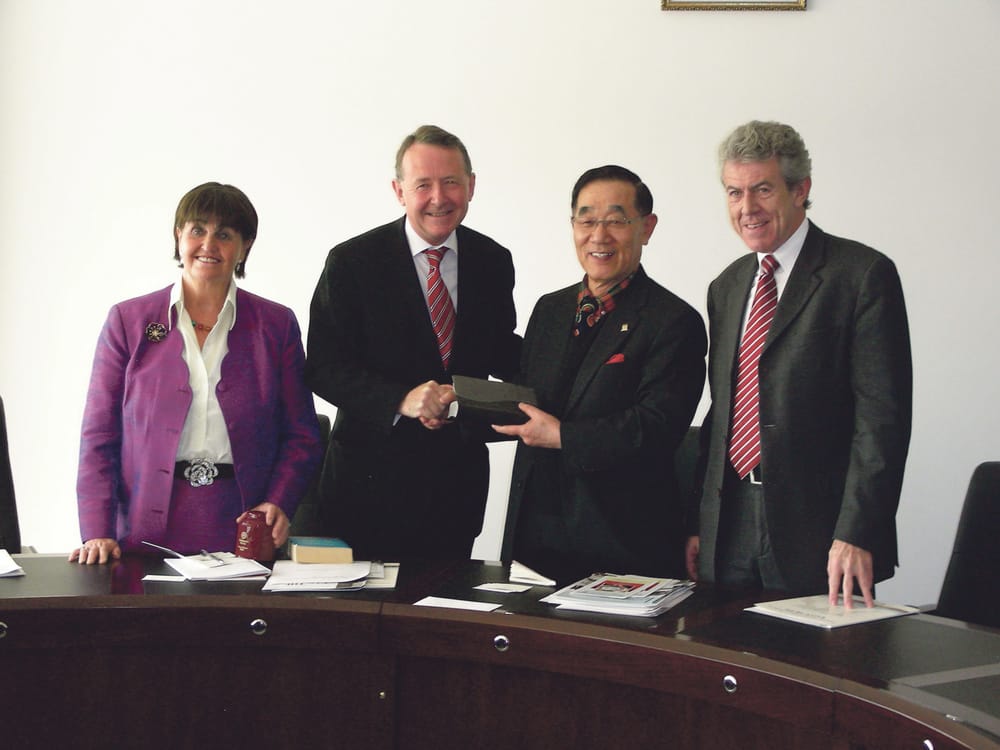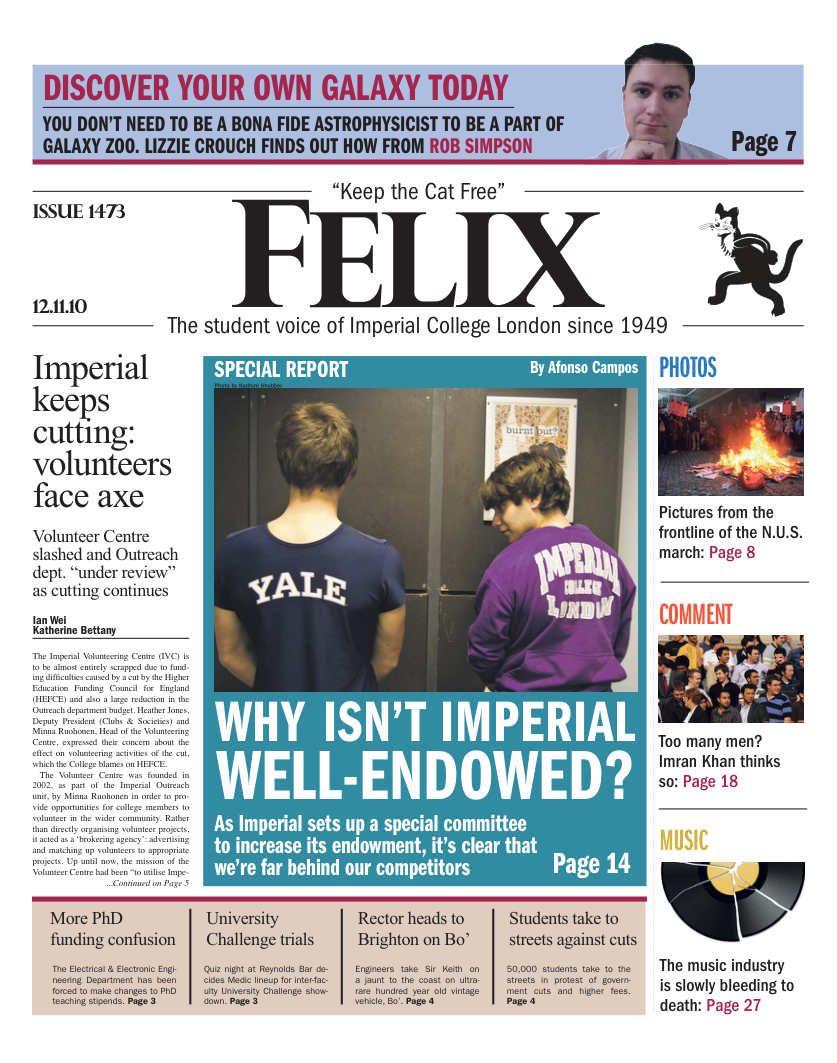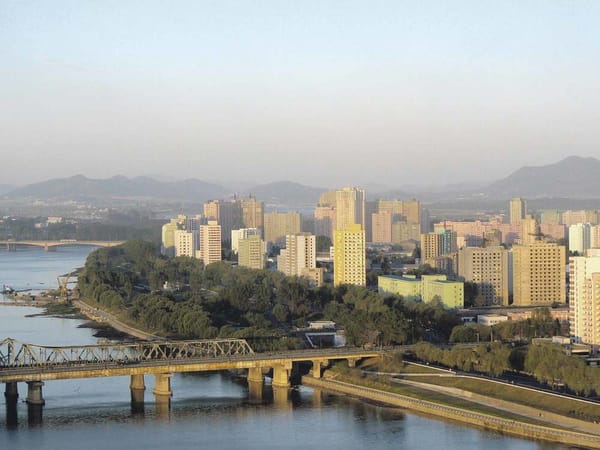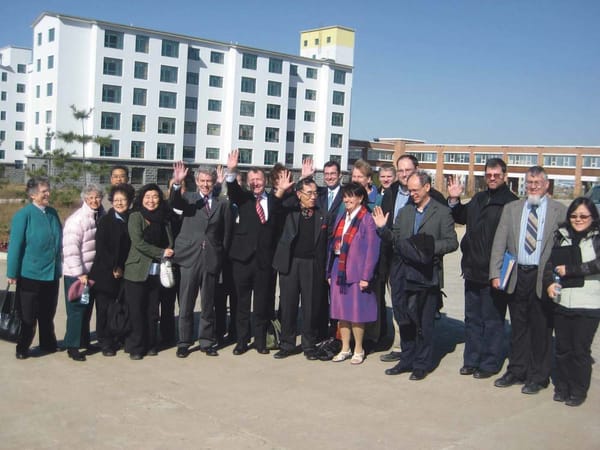The incredible Dr Kim
From death row to founder of North Korea’s first independent university, Dr James Kim’s story is told by Lord David Alton, in the second part of this exclusive series

It’s hard not to be captivated by Korean culture, dignity, and manners. They are a deeply civilized and hospitable people who have suffered grievously: tortured by half a century of degrading and cruel Japanese occupation followed by an ideological war which massacred millions, severed their homeland, and divided their people.
History on the Korean peninsula remains unhealed and a generation of embittered and embattled military and political leaders have presided over sporadic and half-hearted attempts to allow their people to move on.
The human and emotional consequences for families estranged for over half a century are incalculable.
During my recent visit the Government of North Korea confirmed that a new round of brief family reunions would take place but Vice Foreign Minister, Kung Sok Ung, told me that “as many as 20 million inter-related families, first, second and third generation Koreans, remain separated – which is why reunion of the peninsula remains our first priority.”
The economic cost of reunification to the South would be phenomenal, dwarfing the oft cited comparison made with the divided Germanys. North Korea, after all, is a country where, only a decade ago, during a pestilential famine, an estimated two million people died of starvation.
The British Ambassador, Peter Hughes, recently voiced his concern at the continuing manifestation of chronic malnutrition; and, throughout talks with officials, it was never long before the failure of this year’s cabbage crop – which provides the kim-chi staple to Korean families during the impending and always harsh Korean winter, was mentioned.
The cabbage crisis has led to South Korea relaxing its high import tariffs on cabbage and white turnips (previously 27% and 30%) and cornering the market in China’s vegetable growing areas. Scarcity had now led to the price of vegetables in Seoul reaching a historic high of nearly £6 per item. In the North, no family would have access to such resources.
At Sariwon, 40 kilometres from Pyongyang, I visited a co-operative farm and saw agricultural workers bringing in the last of a meagre harvest. Around the fields were blandishments and loudspeakers urging the workers to redouble their efforts – but without improved technology, different methods of agriculture, enhanced yields of crops, and pooling resources with the South, it is hard to see what more the workers can reasonably be expected to do.
Which is why a political settlement, ushering in a new era of peaceful progress and development, is so urgent.
This was the same situation which the Korean-American business man, James Chin Kyung Kim, found in China 17 years ago when he opened the country’s first foreign joint-venture university.
This thriving institution, with 1700 students, places more than 90% of its students in jobs – cutting-edge roles in transforming China’s huge agricultural sector and in its booming liberalised economy. Dr Kim’s dream is to provide the same opportunities for the North Korean students now entering the Pyongyang University of Science and Technology (PUST).
The university had its genesis in 1987 in a series of intermittent visits to Pyongyang.
Initially, he was treated as a curiosity by the regime. After the death of Kim Il Sung the climate changed and, during a visit in 1998, Dr Kim was arrested and thrown in jail, accused of being an American spy.
The situation appeared so bleak that he was told to write a will - and, in keeping with his vow to give everything back to his country - he even told his captors that once they had executed him they could have his body parts for medical research.
James Kim told me that “The North Korean Government was moved and allowed me to return to my home in China.” It was the first time someone was released after the death penalty was imposed. He made no public complaints about what had occurred and “two years later they invited me back to North Korea and asked whether I would forget our differences and build a university for them like the one I had established in China.”
Dr Kim believes his experience is evidence that the regime “can be touched and messages can be communicated at some level. On a much grander scale we need to deepen the experience of reconciliation.” Through education – which “has the power to transcend nationalistic boundaries and promote cross-cultural understanding and respect” - James Kim believes the situation can ultimately be transformed. The results will be durable and long lasting but will not happen overnight and “peace comes with a price.”
Dr Kim asserts that an approach based on patient love “is the only thing that can touch the heart of souls in North Korea. There is nothing that won’t change or be inspired by it.”
PUST’s small corps of teachers, who are committed to ushering in North Korea’s “information age”, providing English language studies which will link its coming generation to global society, and who are now living in Pyongyang, are giving their services for little or no recompense. This is a real service ministry – and they are looking for others to join them for a semester or for a full academic year.
Eventually, Dr Kim wants to see an industrial park created around the PUST campus, providing a springboard for international companies. Ben Rosen, the American venture capitalist and founder of Compaq Computer corporation has visited the campus and believes that PUST will give its students “a window to the outside world and will create a new generation of technocrats with the potential to lead a post-Kim Jong Il government.”
James Kim is under no illusions about what he has taken on: “Our work will be costly and sacrificial in many respects; and it will be time consuming and difficult. However, once that price has been paid it will, in turn, give us peace. We must pay the ‘price of peace’ regardless of our discomfort.”
It’s a sentiment uttered by a man who, during the carnage of the Korean War, saw all of his friends perish, who has festered in a North Korean jail, and whose jailers sentenced him to death. It’s a sentiment which sums up the remarkable story of a truly remarkable man.







